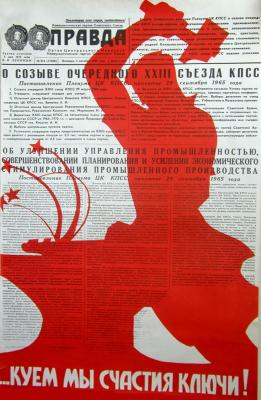Human resources (HR) is the set of people who make up the workforce of an organization, business sector, industry, or economy. A narrower concept is human capital, the knowledge and skills which the individuals command. Similar terms include manpower, labor, or personnel.

Stage management is a broad field that is generally defined as the practice of organization and coordination of an event or theatrical production. Stage management may encompass a variety of activities including overseeing of the rehearsal process and coordinating communications among various production teams and personnel. Stage management requires a general understanding of all aspects of production and provides complete organization to ensure the process runs smoothly and efficiently.

The point of sale (POS) or point of purchase (POP) is the time and place at which a retail transaction is completed. At the point of sale, the merchant calculates the amount owed by the customer, indicates that amount, may prepare an invoice for the customer, and indicates the options for the customer to make payment. It is also the point at which a customer makes a payment to the merchant in exchange for goods or after provision of a service. After receiving payment, the merchant may issue a receipt for the transaction, which is usually printed but can also be dispensed with or sent electronically.

Accounts payable (AP) is money owed by a business to its suppliers shown as a liability on a company's balance sheet. It is distinct from notes payable liabilities, which are debts created by formal legal instrument documents. An accounts payable department's main responsibility is to process and review transactions between the company and its suppliers and to make sure that all outstanding invoices from their suppliers are approved, processed, and paid. The accounts payable process starts with collecting supply requirements from within the organization and seeking quotes from vendors for the items required. Once the deal is negotiated, purchase orders are prepared and sent. The goods delivered are inspected upon arrival and the invoice received is routed for approvals. Processing an invoice includes recording important data from the invoice and inputting it into the company's financial, or bookkeeping, system. After this is accomplished, the invoices must go through the company's respective business process in order to be paid.
A general manager (GM) is an executive who has overall responsibility for managing both the revenue and cost elements of a company's income statement, known as profit & loss (P&L) responsibility. A general manager usually oversees most or all of the firm's marketing and sales functions as well as the day-to-day operations of the business. Frequently, the general manager is responsible for effective planning, delegating, coordinating, staffing, organizing, and decision making to attain desirable profit making results for an organization.
A management buyout (MBO) is a form of acquisition in which a company's existing managers acquire a large part, or all, of the company, whether from a parent company or individual. Management- and/or leveraged buyouts became noted phenomena of 1980s business economics. These so-called MBOs originated in the US, spreading first to the UK and then throughout the rest of Europe. The venture capital industry has played a crucial role in the development of buyouts in Europe, especially in smaller deals in the UK, the Netherlands, and France.
Personnel economics has been defined as "the application of economic and mathematical approaches and econometric and statistical methods to traditional questions in human resources management". It is an area of applied micro labor economics, but there are a few key distinctions. One distinction, not always clearcut, is that studies in personnel economics deal with the personnel management within firms, and thus internal labor markets, while those in labor economics deal with labor markets as such, whether external or internal. In addition, personnel economics deals with issues related to both managerial-supervisory and non-supervisory workers.
Per diem or daily allowance is a specific amount of money that an organization gives an individual, typically an employee, per day to cover living expenses when travelling on the employer's business.
Construction management (CM) aims to control the quality of a project's scope, time, and cost to maximize the project owner's satisfaction. It uses project management techniques and software to oversee the planning, design, construction and closeout of a construction safely, on time, on budget and within specifications.
Tour promoters are the individuals or companies responsible for organizing a live concert tour or special event performance. The tour promoter makes an offer of engagement to a particular artist, usually through the artist's agent or music manager. The promoter and agent then negotiate the live performance contract. The majority of live performance contracts are drawn up using the American Federation of Musicians (AFM) standard contract format known as the AFM Performance Agreement.
A tour manager is the person who helps to organize the administration for a schedule of appearances of a musical group (band) or artist at a sequence of venues. In general, road managers handle tour details for their specific band, while tour managers are used to oversee the logistics, finances and communications for tours as a holistic entity. So, on any given tour, there may be road managers taking care of each band as well as a Tour Manager responsible for caring for the entire tour. The Tour Manager may also be the headlining band's road manager.
Office management is a profession involving the design, implementation, evaluation, and maintenance of the process of work within an office or other organization, in order to sustain and improve efficiency and productivity.
A financial bureau is an accounting business whose main focus is the preparation of finance for other businesses. In the USA such firms are often run by Certified Public Accountants, though a typical financial processing company will refer to itself as a bureau rather than a CPA firm, to distinguish its finance from the general tax and accounting that are generally not offered by a financial bureau. The typical client of a bureau is a small business - one just large enough for finance to be complicated to the point of a hassle, but one still small enough to not merit its own full-time finance department.

A guitar technician is a member of a music ensemble's road crew who maintains and sets up the musical equipment for one or more guitarists. Depending on the type and size of band, the guitar tech may be responsible for stringing, tuning, and adjusting electric guitars and acoustic guitars, and maintaining and setting up guitar amplifiers and other related electronic equipment such as effect pedals.
A theatrical technician, also known as a theatrical tech, theatre technician, or theatre tech is a person who operates technical equipment and systems in the performing arts and entertainment industry. In contrast to performers, this broad category contains all "unseen" theatrical personnel who practice stagecraft and are responsible for the logistic and production-related aspects of a performance including designers, operators, and supervisors.
In theater, dance, and live musical performances, a rider is a set of requests or demands that a performer sets as criteria for performance, which are typically fulfilled by the hosting venue. Types of riders include hospitality and technical.

A mortgage loan or simply mortgage, in civil law jurisdictions known also as a hypothec loan, is a loan used either by purchasers of real property to raise funds to buy real estate, or by existing property owners to raise funds for any purpose while putting a lien on the property being mortgaged. The loan is "secured" on the borrower's property through a process known as mortgage origination. This means that a legal mechanism is put into place which allows the lender to take possession and sell the secured property to pay off the loan in the event the borrower defaults on the loan or otherwise fails to abide by its terms. The word mortgage is derived from a Law French term used in Britain in the Middle Ages meaning "death pledge" and refers to the pledge ending (dying) when either the obligation is fulfilled or the property is taken through foreclosure. A mortgage can also be described as "a borrower giving consideration in the form of a collateral for a benefit (loan)".
The most recent umpire strike in Minor League Baseball history was the strike of 2006. It involved primarily a monetary dispute between the Association of Minor League Umpires (AMLU), a trade union, and the Professional Baseball Umpire Corporation (PBUC), a management company. The dispute resulted in the hiring of replacement umpires for a number of games, followed by minor concessions by both parties, resulting in a slight wage increase for umpires employed in Minor League Baseball.
The Unit Deployment Program (UDP) is a system for assigning deployments of the United States Marine Corps. To reduce the number of unaccompanied tours and improve unit continuity, the Commandant of the Marine Corps, (CMC) established it to provide for the deployment of units to the Western Pacific (WESTPAC) for periods of approximately six months. The initial program was a six-phased evolution that sequenced infantry battalions and aircraft squadrons/detachments into WESTPAC deployments, thus eliminating the 12-month permanent change of station assignments for personnel assigned to these units. The program commenced in October 1977 and has proceeded through the six phases. In August 1985, tank companies began phasing into the program but following Southwest Asia, were discontinued. In Fiscal Year 1987 (FY87) and FY88, Amphibious Assault Vehicle (AAV) companies and direct support artillery batteries were phased in and later, Light Armored Reconnaissance (LAR) companies were also included in the program. The Marine Corps’ objective is to adhere as closely as possible to a six-month period of deployment away from a unit's Continental United States (CONUS) home base. In the case of Hawaii-based infantry battalions, which employ a three-battalion rotation base, a seven-month period of deployment is executed to support the Unit Cohesion Program and efficient staffing of first term Marines. It must be understood, however, that shipping or airlift schedule variations, and exercise or contingency operations will occasionally necessitate longer or shorter deployments for participating units. It is imperative that all personnel involved in these deployments be kept fully informed of planned deployment duration and subsequent deployment schedule changes.

The 1965 Soviet economic reform, sometimes called the Kosygin reform or Liberman reform, was a set of planned changes in the economy of the USSR. A centerpiece of these changes was the introduction of profitability and sales as the two key indicators of enterprise success. Some of an enterprise's profits would go to three funds, used to reward workers and expand operations; most would go to the central budget.





